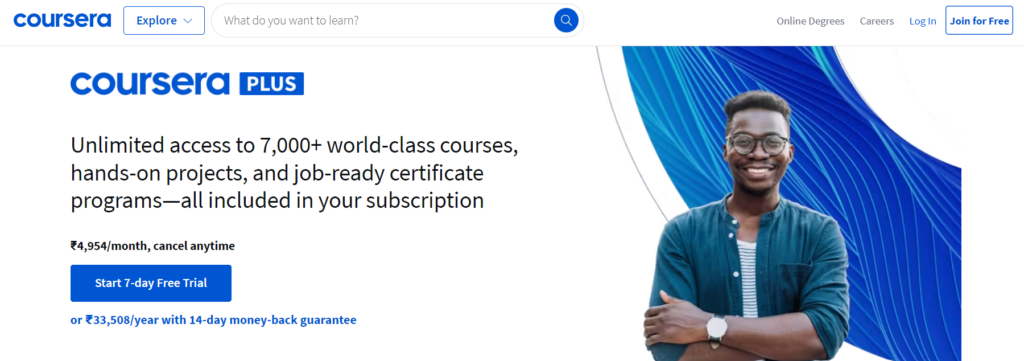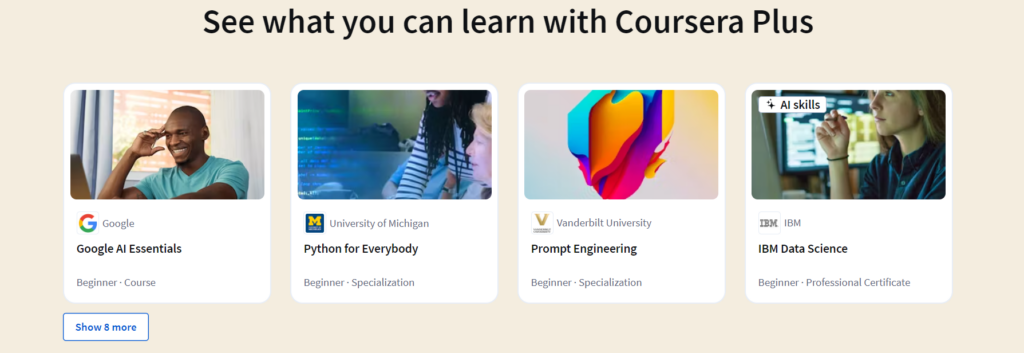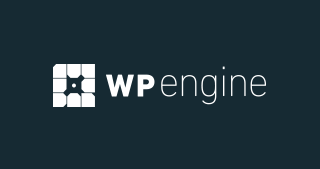In today’s fast-paced digital age, online learning platforms have become invaluable resources for both personal development and career growth. Among the top contenders in the online learning space are Coursera and LinkedIn Learning.
These platforms provide learners with flexible, high-quality educational experiences that cater to a wide range of needs, from career-driven skills development to academic pursuits.
While both Coursera and LinkedIn Learning offer a vast array of courses, they differ significantly in terms of focus, features, pricing, and learning experiences.
This detailed comparison will help you determine which platform suits your unique learning objectives.
The online learning landscape has seen remarkable growth in recent years, with platforms like Coursera and LinkedIn Learning leading the charge.
Each of these platforms brings unique strengths to the table, catering to different types of learners.
Whether you’re looking to earn a professional certificate, advance your career, or simply learn something new, choosing between Coursera and LinkedIn Learning can be a challenge due to the variety of options they offer.
Coursera is known for its strong partnerships with universities and institutions, providing learners with access to academic courses, professional certifications, and even full-fledged degrees.
Launched in 2012 by two Stanford University professors, Coursera has since grown to offer over 7,000 courses from over 200 partner institutions.
LinkedIn Learning, formerly Lynda.com, was rebranded after LinkedIn acquired the platform in 2015. As a part of the LinkedIn ecosystem, LinkedIn Learning focuses on skills development, offering a library of over 20,000 video-based courses in business, technology, and creative fields.
The platform integrates well with LinkedIn, making it ideal for professionals looking to enhance their resumes or improve job prospects.
This post will explore Coursera and LinkedIn Learning in detail, examining their features, pricing, and overall value to help you make an informed choice.
Overview of Coursera and edX
Overview of Coursera

Coursera is an online learning platform that partners with leading universities, organizations, and companies worldwide. It offers a wide range of courses across various fields such as business, technology, health, and social sciences.
Coursera’s academic rigor makes it an excellent choice for learners who want access to university-level education without attending a traditional school.
Learners can earn certificates, degrees, and even take free courses. Coursera’s flexibility in offering both free and paid content has contributed to its widespread popularity among students and professionals alike.
Overview of LinkedIn Learning
LinkedIn Learning, on the other hand, is a platform that focuses primarily on professional and skills-based education.
With a library of over 20,000 courses, LinkedIn Learning helps users enhance their knowledge in areas like leadership, digital marketing, design, software development, and business analytics.
It offers a seamless connection to LinkedIn, allowing learners to showcase completed courses and skills directly on their profiles. The platform excels in offering short, video-based tutorials that are easy to follow and digest.
Both platforms are well-regarded, but their target audiences and the types of learning experiences they offer are quite different.
While Coursera tends to attract learners seeking academic and professional qualifications, LinkedIn Learning is ideal for professionals looking to upskill quickly in their current job roles.
Features of Coursera
Coursera provides a rich set of features designed to cater to both academic and professional learners. Some of the standout features include:
1. Partnerships with Top Universities and Institutions
Coursera has partnerships with leading universities and organizations, including Stanford, Yale, Google, and IBM.
This allows learners to access top-tier educational content that would otherwise be available only through traditional degree programs.
Coursera’s university-level courses are designed to give learners the same quality of education they would receive in a campus setting.
2. Professional Certificates and Degrees

One of Coursera’s most appealing features is its range of professional certificates and accredited degrees.
Learners can complete specialized programs in fields like data science, machine learning, business analytics, and public health.
These programs offer both theoretical and practical knowledge and are often recognized by employers, adding significant value to a learner’s resume.
3. Free and Paid Course Options
Coursera offers a mix of free courses and paid programs.
Learners can audit many courses for free, gaining access to video lectures and course materials without earning a certificate. For those seeking formal recognition, Coursera offers verified certificates and diplomas for an additional fee.
4. Structured Learning Paths

Coursera provides structured learning paths like Specializations, which are series of courses designed to help learners master specific topics in depth.
These paths often include hands-on projects and capstone assessments, making the learning experience more immersive and practical.
5. Flexible Learning Options
Coursera courses are self-paced, allowing learners to study on their own time. However, some courses have set deadlines to maintain structure, especially for professional certificates and degree programs. This combination of flexibility and structure makes Coursera ideal for learners with varying schedules.
6. Accredited Degree Programs
Coursera also offers accredited degree programs in collaboration with prestigious universities.
Learners can earn full Bachelor’s and Master’s degrees online at a fraction of the cost of traditional programs. These degrees are recognized globally and provide the same value as on-campus degrees.
Features of LinkedIn Learning
LinkedIn Learning has a different focus than Coursera, offering a feature set designed for professionals looking to improve job-related skills. Key features include:
1. Extensive Course Library
LinkedIn Learning boasts over 20,000 video-based courses across a wide variety of subjects. These include soft skills like leadership, time management, and communication, as well as technical skills such as programming, graphic design, and data analytics.
Courses are taught by industry experts, and new content is regularly added to keep the library up-to-date with market trends.
2. Personalized Course Recommendations
One of LinkedIn Learning’s strengths is its ability to provide personalized course recommendations. Based on a user’s LinkedIn profile and career interests, the platform suggests relevant courses that can help improve their skills or advance their careers.
This integration with LinkedIn is a key advantage for professionals looking to make immediate improvements in their job performance or career trajectory.
3. Skill Assessment and Badging
LinkedIn Learning provides skill assessments that allow learners to test their knowledge in specific areas. Upon completion of a course, learners receive badges that they can display on their LinkedIn profiles, showcasing their achievements to potential employers or connections.
This feature helps learners gain visibility in the job market and enhances their professional credibility.
4. Offline Learning
Like Coursera, LinkedIn Learning also offers an app that allows users to download courses and learn offline. This feature is particularly useful for learners who want to study on the go without needing an internet connection.
5. Short, Digestible Content
LinkedIn Learning’s video courses are typically short and easy to digest, making it perfect for busy professionals who want to learn in small increments.
Many courses are broken down into multiple short videos, allowing learners to complete sections at their own pace.
6. Integration with LinkedIn
Since LinkedIn Learning is part of the LinkedIn ecosystem, it allows learners to showcase their newly acquired skills and certificates on their LinkedIn profiles.
This makes the platform particularly attractive to professionals who want to enhance their online presence and improve their employability.
Pricing of Coursera and LinkedIn Learning
Pricing is another key difference between Coursera and LinkedIn Learning. Each platform offers different pricing models based on the types of courses and programs available.
Coursera Pricing

- Free Courses: Many courses on Coursera are free to audit. Learners can access the course materials but won’t receive a certificate unless they pay for the course.
- Certificates and Specializations: Paid courses and specializations usually range from $39 to $99. Coursera’s pricing varies depending on the institution and the complexity of the course.
- Coursera Plus: Coursera offers a subscription model called Coursera Plus, which gives learners unlimited access to over 7,000 courses for a flat annual fee of $399. This subscription is ideal for those who want to explore multiple subjects and gain a variety of skills over time.
- Degree Programs: Coursera offers accredited degree programs, and these typically range in price from $10,000 to $25,000, depending on the program and university.
LinkedIn Learning Pricing
- Free Trial: LinkedIn Learning offers a 1-month free trial for new users, allowing them access to the entire course library.
- Subscription: After the trial period, learners can subscribe for $39.99 per month or opt for an annual subscription at $239.88 (which breaks down to about $19.99 per month). This subscription provides unlimited access to all courses, and learners can cancel their subscription at any time.
- Enterprise Options: LinkedIn Learning also offers corporate subscriptions for businesses that want to provide training to their employees. These packages are custom-priced based on the number of employees and the specific training needs of the organization.
FAQs
Which platform offers more academic courses, Coursera or LinkedIn Learning?
Coursera offers more academically focused courses, often in partnership with universities.
Can I get a degree on Coursera and LinkedIn Learning?
Coursera offers fully accredited degrees, while LinkedIn Learning does not offer degree programs.
Is LinkedIn Learning more affordable than Coursera?
Yes, LinkedIn Learning offers a more affordable monthly subscription model, whereas Coursera’s courses and degree programs are priced higher.
Can I learn at my own pace on both platforms?
Yes, both platforms allow learners to study at their own pace, but Coursera also offers more structured programs with deadlines for its degree and certificate courses.
Which platform is better for career advancement?
Both are excellent for career advancement, but LinkedIn Learning’s direct integration with
LinkedIn makes it easier to showcase skills and achievements to potential employers.
Conclusion
When comparing Coursera and LinkedIn Learning, the right platform for you will depend on your personal learning objectives and career goals.
Coursera’s strength lies in its academic rigor and its partnerships with world-renowned universities, making it a great choice for learners who want to pursue formal education, gain professional certificates, or earn a degree.
Coursera’s university-backed courses are particularly valuable for those seeking credentials that are recognized by employers globally.
On the other hand, LinkedIn Learning excels in offering skills-based training that is highly practical and industry-focused. Its short, video-based courses are perfect for busy professionals who want to upskill quickly and improve their job performance.
The seamless integration with LinkedIn allows learners to enhance their professional profiles and gain visibility in the job market, making LinkedIn Learning an excellent choice for those seeking immediate career benefits.
In terms of pricing, LinkedIn Learning is more affordable, with a monthly subscription model that provides access to thousands of courses.
Coursera, with its higher price point for certificates and degrees, is better suited for those looking for long-term educational credentials.
Ultimately, the platform you choose should align with your career aspirations and learning preferences. If you’re looking for academic credentials and university-level education, Coursera is the clear winner.
If you’re more interested in quickly developing practical skills for immediate career advancement, LinkedIn Learning is the ideal platform.



